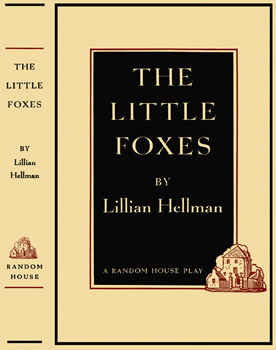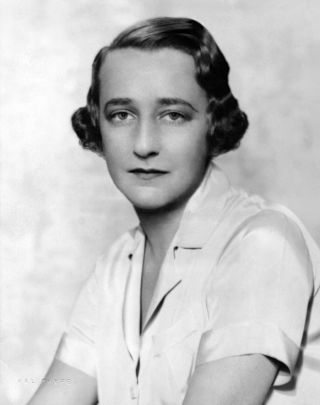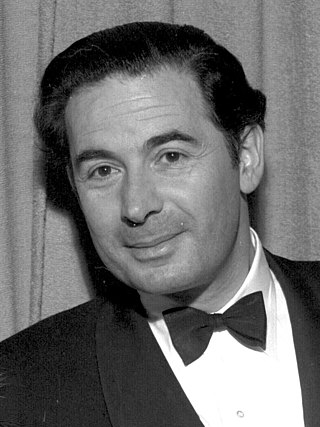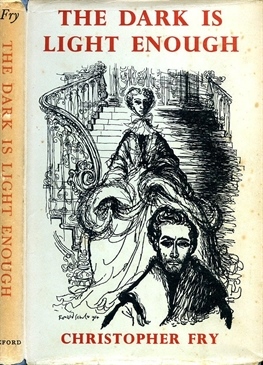
Jean Marie Lucien Pierre Anouilh was a French dramatist and screenwriter whose career spanned five decades. Though his work ranged from high drama to absurdist farce, Anouilh is best known for his 1944 play Antigone, an adaptation of Sophocles' classical drama, that was seen as an attack on Marshal Pétain's Vichy government. His plays are less experimental than those of his contemporaries, having clearly organized plot and eloquent dialogue. One of France's most prolific writers after World War II, much of Anouilh's work deals with themes of maintaining integrity in a world of moral compromise.

The Little Foxes is a 1939 play by Lillian Hellman, considered a classic of 20th century drama. Its title comes from Chapter 2, Verse 15, of the Song of Solomon in the King James version of the Bible, which reads, "Take us the foxes, the little foxes, that spoil the vines: for our vines have tender grapes." Set in a small town in Alabama in 1900, it focuses on the struggle for control of a family business. Tallulah Bankhead starred in the original production as Regina Hubbard Giddens.
Becket or The Honour of God, often shortened to Becket, is a 1959 stage play written in French by Jean Anouilh. It is a depiction of the conflict between Thomas Becket and King Henry II of England leading to Becket's assassination in 1170. It contains many historical inaccuracies, which the author acknowledged.

Julia Ann Harris was an American actress. Renowned for her classical and contemporary roles, she earned numerous accolades including the record five Tony Awards for Best Actress in a Play, three Emmy Awards, and a Grammy Award in addition to nominations for an Academy Award, and a BAFTA Award. She was inducted into the American Theatre Hall of Fame in 1979, received the National Medal of Arts in 1994, the Special Lifetime Achievement Tony Award, and the Kennedy Center Honor in 2005.

Lillian Florence Hellman was an American playwright, prose writer, memoirist and screenwriter known for her success on Broadway, as well as her communist views and political activism. She was blacklisted after her appearance before the House Committee on Un-American Activities (HUAC) at the height of the anti-communist campaigns of 1947–1952. Although she continued to work on Broadway in the 1950s, her blacklisting by the American film industry caused a drop in her income. Many praised Hellman for refusing to answer questions by HUAC, but others believed, despite her denial, that she had belonged to the Communist Party.

Arthur Christopher Orme Plummer was a Canadian actor. His career spanned seven decades, gaining him recognition for his performances in film, stage, and television. His accolades included an Academy Award, two Tony Awards, and two Primetime Emmy Awards, making him the only Canadian recipient of the "Triple Crown of Acting". He also received a BAFTA Award, a Golden Globe Award, and Screen Actors Guild Award as well as a nomination for a Grammy Award.

Christopher Fry was an English poet and playwright. He is best known for his verse dramas, especially The Lady's Not for Burning, which made him a major force in theatre in the 1940s and 1950s.

Mother Courage and Her Children is a play written in 1939 by the German dramatist and poet Bertolt Brecht (1898–1956), with significant contributions from Margarete Steffin. Four theatrical productions were produced in Switzerland and Germany from 1941 to 1952, the last three supervised and/or directed by Brecht, who had returned to East Germany from the United States.

Leopold John Genn was an English actor and barrister. Distinguished by his relaxed charm and smooth, "black velvet" voice, he had a lengthy career in theatre, film, television, and radio; often playing aristocratic or gentlemanly, sophisticate roles.

Joan Maxine Kupchik, known professionally as Joan Copeland, was an American actress. She was the younger sister of playwright Arthur Miller. She began her career during the mid-1940s, appearing in theatre in New York City, where, shortly thereafter, she would become one of the first members admitted to the newly formed Actors Studio. She moved into television and film during the 1950s while still maintaining an active stage career. She is best known for her performances in the 1977 Broadway revival of Pal Joey and her award-winning performance in the 1981 play The American Clock. She also played a number of prominent roles on various soap operas throughout her career, including Andrea Whiting on Search for Tomorrow and Gwendolyn Lord Abbott on One Life to Live. She voiced Tanana in Brother Bear.

Ursula Jean McMinn, better known as Ursula Jeans, was an English film, stage, and television actress.
Zoe Ada Caldwell was an Australian actress. She was a four-time Tony Award winner, winning Best Featured Actress in a Play for Slapstick Tragedy (1966), and Best Actress in a Play for The Prime of Miss Jean Brodie (1968), Medea (1982), and Master Class (1996). Her film appearances include The Purple Rose of Cairo (1985), Birth (2004), and Extremely Loud & Incredibly Close (2011). She was also known for providing the voice of the Grand Councilwoman in the Lilo & Stitch franchise and in Kingdom Hearts: Birth by Sleep.

Pack of Lies is a 1983 play by English writer Hugh Whitemore, itself adapted from his Act of Betrayal, an episode of the BBC anthology series Play of the Month transmitted in 1971.

The Dark Is Light Enough is a 1954 verse play by Christopher Fry, which he wrote for Dame Edith Evans and set during the Hungarian Revolution of 1848. It is formally a comedy, but Fry subtitled the play 'A Winter Comedy' to signal its tragic qualities.
Ring Round the Moon is a 1950 adaptation by the English dramatist Christopher Fry of Jean Anouilh's Invitation to the Castle (1947). Peter Brook commissioned Fry to adapt the play and the first production of Ring Round the Moon was given at the Globe Theatre. The production starred Paul Scofield, Claire Bloom and Margaret Rutherford.

Michael Patrick Higgins Jr. was an American actor who appeared in film and on stage, and was best known for his role in the original Broadway production of Equus.
Kermit Bloomgarden was an American theatrical producer. He was an accountant before he began producing plays on Broadway including Death of a Salesman (1949), The Diary of Anne Frank (1955), The Music Man (1957), Look Homeward, Angel (1957), and Equus (1973).
William Aubert Luce was an American writer, primarily for the stage and television. He wrote several plays which starred Julie Harris, and specialized in one-person plays.

Robert Pastene was an American actor who appeared films, television and on stage. He acted in a variety of television dramas during what is known as the Golden Age of Television throughout the 1950s and 60s. On Broadway he performed in plays by Shakespeare, Strindberg, Brecht, Aeschylus, Shaw and Lillian Hellman. In the 1960s and 70s he had a significant career at the Guthrie Theater in Minneapolis, which began in 1963 with the theater’s inaugural season.

The Lark is a 1958 Australian TV version of the 1952 Jean Anouilh play of the same title.














